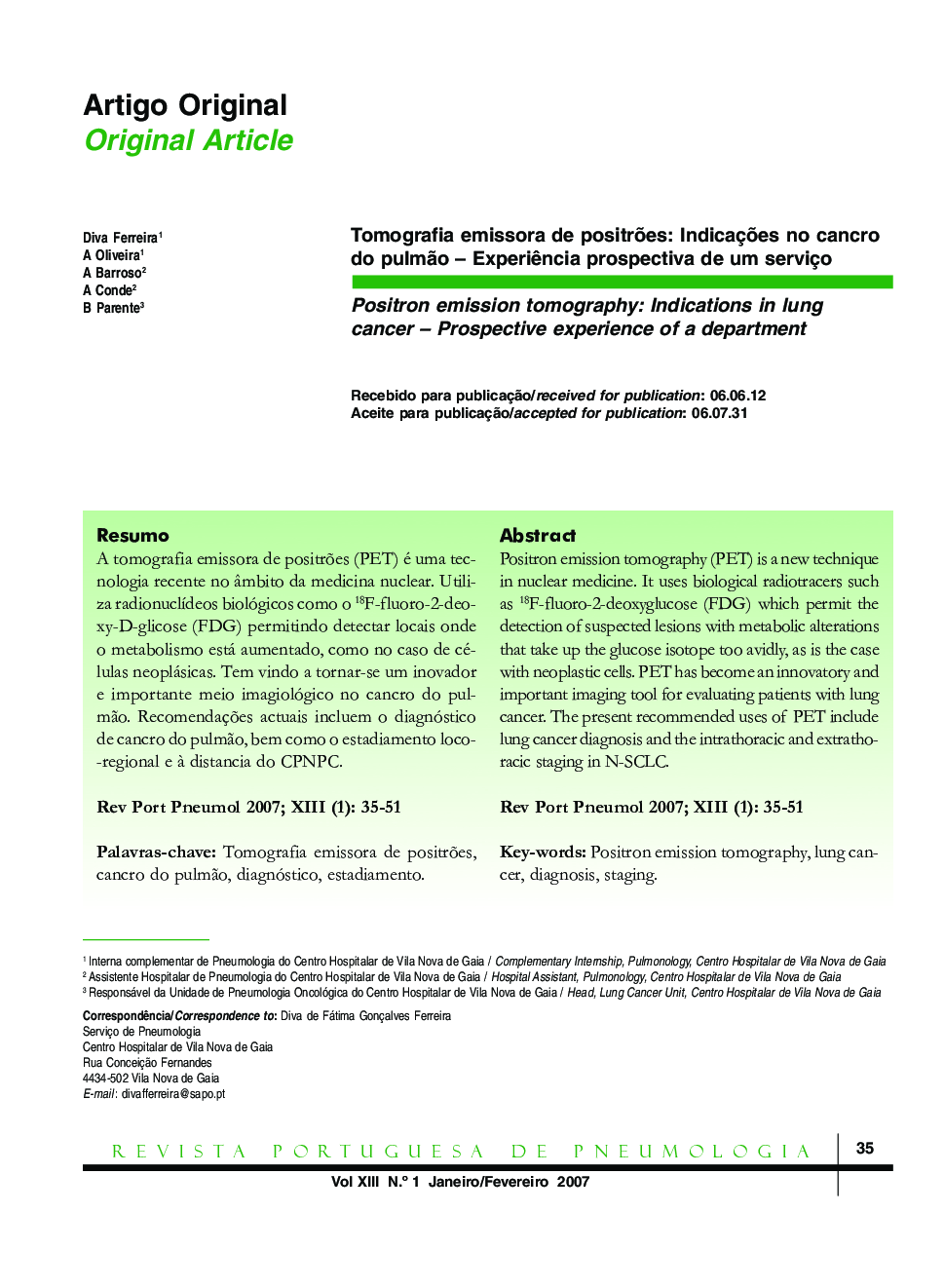| Article ID | Journal | Published Year | Pages | File Type |
|---|---|---|---|---|
| 4214472 | Revista Portuguesa de Pneumologia | 2007 | 17 Pages |
ResumoA tomografia emissora de positrões (PET) é uma tecnologia recente no âmbito da medicina nuclear. Utiliza radionuclídeos biológicos como o 18 F-fluoro-2-deo-xy-D-glicose (FDG) permitindo detectar locais onde o metabolismo está aumentado, como no caso de células neoplásicas. Tem vindo a tornar-se um inovador e importante meio imagiológico no cancro do pulmão. Recomendações actuais incluem o diagnóstico de cancro do pulmão, bem como o estadiamento loco-regional e à distancia do CPNPC.Rev Port Pneumol 2007; XIII (1): 35-51
Positron emission tomography (PET) is a new technique in nuclear medicine. It uses biological radiotracers such as 18 F-fluoro-2-deoxyglucose (FDG) which permit the detection of suspected lesions with metabolic alterations that take up the glucose isotope too avidly, as is the case with neoplastic cells. PET has become an innovatory and important imaging tool for evaluating patients with lung cancer. The present recommended uses of PET include lung cancer diagnosis and the intrathoracic and extrathoracic staging in N-SCLC.Rev Port Pneumol 2007; XIII (1): 35-51
